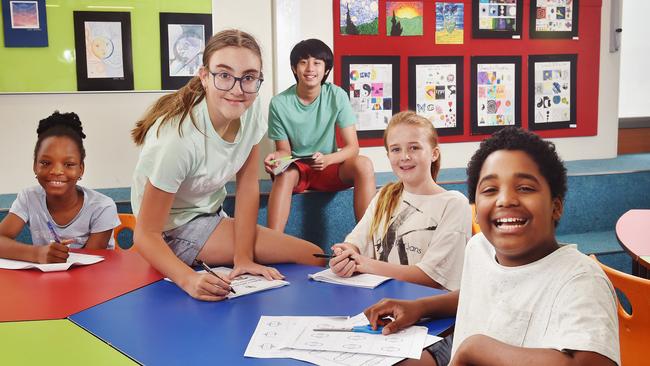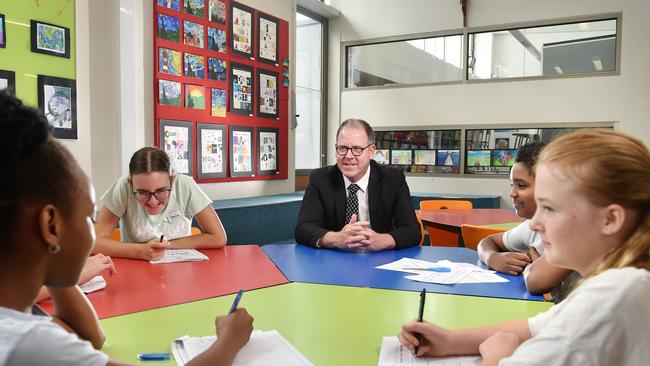Extra cash helping students play catch up
Schools are working to get kids up to speed after the pandemic caused plenty of disruption to students’ learning.

Coronavirus
Don't miss out on the headlines from Coronavirus. Followed categories will be added to My News.
Better resourced government schools are topping up their share of the $250m COVID catch up tutoring cash for kids who fell behind during lockdown.
The program, which aims to bring one in five students up to speed, is being rolled out from Term 1.
Schools are using the funding creatively with before school, lunch and after school tutoring and break out groups within classes.
Greenvale Lakes’ Kolbe Catholic College is running a summer school over four days this week for 50 incoming Year 7 students.
Above average Box Hill High School has received $200,000 and will top it up with community funds of $80,000 for literacy and numeracy catch ups.
Schools are entitled to use any equity funding with each school allocated a base $15,000 with extra funding tied to enrolment and disadvantage.
Box Hill, with nearly 1400 students, is one of the higher performing government schools and is well above average on the socio economic scale.
Victoria University Secondary College, in St Albans, has received $438,867 for its nearly 1000 students.

More than 70 per cent of students come from backgrounds other than English and it has a below average socio-economic make up.
According to the State Government, more than 4000 teaching professionals will work in schools during 2021.
Kolbe received $200,000 from the pool of $23 million allocated to Catholic schools.
Principal Nick Scully said there was concern from families that the stop start 2020 may have left gaps in learning.
“The optional summer school program aims to assist students with their literacy and numeracy
development, as well as support their transition into secondary school here at Kolbe,” Mr Scully said.
Kolbe has partnered with the Australian Catholic University to use pre-service teachers at both a bachelor and masters level.
The government is pitching the program to kids with low levels of English, those at risk of quitting school, from homes where remote learning did not work and others, who for various reasons, fell behind.




